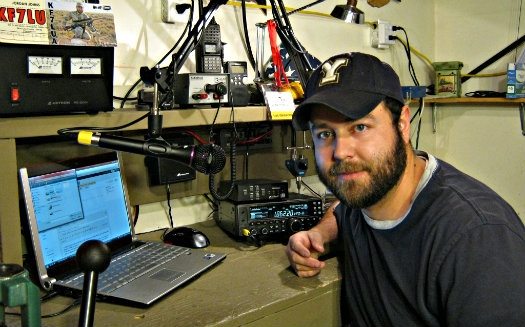What's happening at BCARA
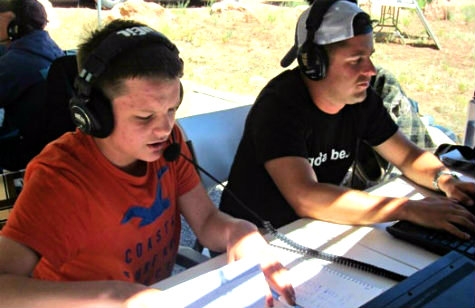
What is Ham Radio? (click here)
What is Ham Radio? Amateur Radio (ham radio) is a popular hobby and service that brings people, electronics and communication together. People use ham radio to talk across town, around the world, or even into space, all without the Internet or cell phones. It's fun, social, educational, and can be a lifeline during times of need. You can set up a ham radio station anywhere! In a field... ...at a club station.... ...or at home. Although Amateur Radio operators get involved for many reasons, they all have in common a basic knowledge of radio technology and operating principles,...
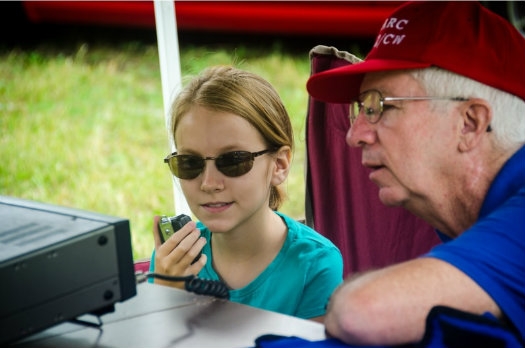
Why should I get licensed? (click here)
Why should I get licensed? Before you can get on the air, you need to be licensed and know the rules to operate legally. US licenses are good for 10 years before renewal and anyone may hold one except a representative of a foreign government. In the US there are three license classes—Technician, General and Extra. Technician License The Technician class license is the entry-level license of choice for most new ham radio operators. To earn the Technician license requires passing one examination totaling 35 questions on radio theory, regulations and operating practices. The license gives access to all Amateur Radio frequencies above...
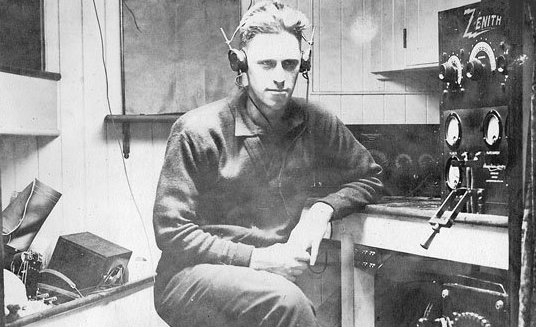
Ham Radio History (click here)
In 1873, James Clerk Maxwell presented his theory of the electromagnetic field. In 1901 Guglielmo Marconi communicated across the Atlantic with a radio device using high power and giant antennas. To curb interference, Congress approved the Radio Act of 1912, which required amateurs to be licensed and restricted to the single wavelength of 200 meters. In 1914 the American Radio Relay League was founded by Hiram Percy Maxim, who found that messages could be sent more reliably over long distances if relay stations were organized. Transatlantic transmitting and receiving tests began in 1921 and by July 1960 the first two-way contact...
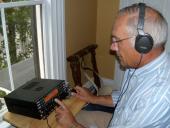
Your First Station (click here)
Your Amateur Radio station may change, but you have to start somewhere, right? Here are some fundamentals that all Amateur Radio stations have in common: Transceiver Power Supply Antenna System The Transceiver Selecting your transceiver will largely depend on how much you want to spend and what you hope to do. If you want to explore long-distance contacts on the HF bands, you’ll need an HF transceiver. If you are interested in chatting with local friends on the VHF or UHF bands, look for a VHF+ FM transceiver. Build Your Own Radio Most hams buy their radios factory assembled,...
-
What is Ham Radio? (click here)
-
Why should I get licensed? (click here)
-
Ham Radio History (click here)
-
Your First Station (click here)
Why should I get licensed? (click here)
Why should I get licensed?
Before you can get on the air, you need to be licensed and know the rules to operate legally. US licenses are good for 10 years before renewal and anyone may hold one except a representative of a foreign government. In the US there are three license classes—Technician, General and Extra.
Technician License

The Technician class license is the entry-level license of choice for most new ham radio operators. To earn the Technician license requires passing one examination totaling 35 questions on radio theory, regulations and operating practices. The license gives access to all Amateur Radio frequencies above 30 megahertz, allowing these licensees the ability to communicate locally and most often within North America. It also allows for some limited privileges on the HF (also called "short wave") bands used for international communications. Learn More
General License
The General class license grants some operating privileges on all Amateur Radio bands and all operating modes. This license opens the door to world-wide communications. Earning the General class license requires passing a 35 question examination. General class licensees must also have passed the Technician written examination. Learn More
Amateur Extra License
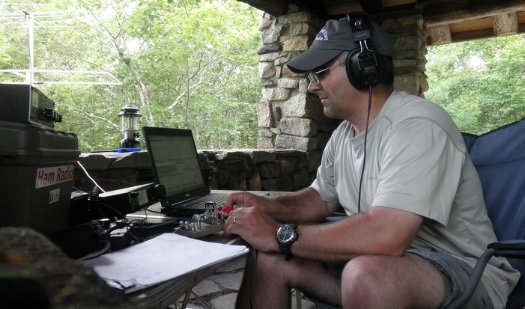
The Amateur Extra class license conveys all available U.S. Amateur Radio operating privileges on all bands and all modes. Earning the license is more difficult; it requires passing a thorough 50 question examination. Extra class licensees must also have passed all previous license class written examinations.Learn More
For more information, submit our online Prospect Package Request form or call: 1-888-277-5289.
BCARA provides testing opportunities to obtain your amateur radio license without a fee!
This content was created by ARRL.ORG The direct link is:
http://www.arrl.org/getting-licensed
Member Login
Main Menu
Who's Online
We have 11 guests and no members online
Meetings
ARRL News
American Radio Relay League | Ham Radio Association and Resources
The American Radio Relay League (ARRL) is the national association for amateur radio, connecting hams around the U.S. with news, information and resources.-
The ARRL Solar Update
Solar activity reached moderate levels early this week. Thestrongest event was an M1.4 flare observed on February 11 in Region4366. This region also produced nine C-class flares. Region 4373 produced a C1.8/Sf flare on February 11. This regiondisplayed some minor area growth. Regions 4369 and 4371 exhibitedsome minor decay. The other spotted regions remained unchanged. NewRegion 4375 was number...
-
Radio Clubs Encouraged to Plan Now for April Ham Radio Open House
ARRL The National Association for Amateur Radio® is inviting radio clubs to participate in the second annual Ham Radio Open House in April. Hosting an Open House gives clubs and schools the opportunity to promote amateur radio science and technology by opening their stations to the public and showcasing their hi-tech gear and operating skills.In addition, clubs are encouraged to set up in publi...
-
ARRL Mourns the Loss of Sharon Taratula, Awards Manager
ARRL The National Association for Amateur Radio® is saddened to share the news that Sharon Taratula, who served the League with dedication and distinction for 32 years, passed away on February 4, 2026.Sharon joined ARRL on January 31, 1994, as DXCC Awards Technician. She later served as Administrative Assistant (1996), MVP Administrative Manager (2011), and from 2016 until her passing, as Award...
-
The ARRL Solar Update
Solar activity was at high levels for most of the week, dominated byRegion 4366. The most notable event was an impulsive X4.2 flare fromthat region on February 4. Throughout the period, Region 4366continued to exhibit a slight reduction in area and a modestsimplification of its magnetic complexity. The remaining numberedregions on the visible disk remained stable or in a state of slightdecay. T...
-
NCVEC Question Pool Committee Removes Three Questions from Use
-
ARRL Joins America250 as a Supporting Partner for the Nation’s 250th Anniversary

